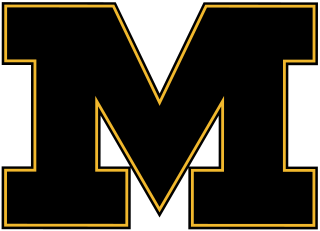Related Research Articles

The Big Ten Conference is the oldest Division I collegiate athletic conference in the United States. Founded as the Intercollegiate Conference of Faculty Representatives in 1896, it predates the founding of its regulating organization, the NCAA. It is based in Rosemont, Illinois. For many decades the conference consisted of ten universities, and presently has 14 members and two affiliate institutions. The conference competes in the NCAA Division I and its football teams compete in the Football Bowl Subdivision (FBS), formerly known as Division I-A, the highest level of NCAA competition in that sport.

The Alamo Bowl is an NCAA Division I Football Bowl Subdivision college football bowl game played annually since 1993 in the Alamodome in San Antonio, Texas. Since 2010 it matches the second choice team from the Pac-12 Conference and the second choice team from the Big 12 Conference. Traditionally, the Alamo Bowl has been played in December, although it was played in January following the 2009, 2014, and 2015 seasons.

The Rose Bowl Game is an annual American college football bowl game, usually played on January 1 at the Rose Bowl in Pasadena, California. When New Year's Day falls on a Sunday, the game is played on Monday, January 2. The Rose Bowl Game is nicknamed "The Granddaddy of Them All" because it is the oldest currently operating bowl game. It was first played in 1902 as the Tournament East–West football game, and has been played annually since 1916. Since 1945, it has been the highest attended college football bowl game. Since 2021, the game has been sponsored by Capital One, and will be officially known as Rose Bowl Game Presented by Capital One Venture X in 2022. Previous sponsors include Northwestern Mutual (2015–2020), Vizio (2011–2014), Citi (2004–2010), Sony/PlayStation 2 (2003), and AT&T (1999–2002). The game is a part of the Pasadena Tournament of Roses Association's "America's New Year Celebration", which also includes the historic Rose Parade. Winners of the game received the Leishman Trophy, named for former Tournament of Roses presidents, William L. Leishman and Lathrop K. Leishman who played an important part in the history of this game.

The San Francisco Bowl is an annual postseason college football bowl game certified by the NCAA and played in the San Francisco Bay Area. Originally the San Francisco Bowl, it was the Emerald Bowl from 2004 to 2009, the Fight Hunger Bowl from 2010 to 2013, the Foster Farms Bowl from 2014 to 2017, and the Redbox Bowl from 2018 to 2020.

The Bowl Championship Series (BCS) was a selection system that created five bowl game match-ups involving ten of the top ranked teams in the NCAA Division I Football Bowl Subdivision (FBS) of American college football, including an opportunity for the top two teams to compete in the BCS National Championship Game. The system was in place for the 1998 through 2013 seasons and in 2014 was replaced by the College Football Playoff.

The Big Eight Conference was a National Collegiate Athletic Association (NCAA)-affiliated Division I-A college athletic association that sponsored football. It was formed in January 1907 as the Missouri Valley Intercollegiate Athletic Association (MVIAA) by its charter member schools: the University of Kansas, University of Missouri, University of Nebraska, and Washington University in St. Louis. Additionally, the University of Iowa was an original member of the MVIAA, while maintaining joint membership in the Western Conference.
The Bowl Alliance was an agreement among college football bowl games for the purpose of trying to match the top two teams in a national championship game and to provide quality bowl game matchups for the champions of its member conferences. The agreement was in place for the 1995, 1996, and 1997 seasons and had replaced the Bowl Coalition. Each participating team in the Bowl Alliance Championship received $8.5 million from the television sponsors.

The Power Five conferences are five athletic conferences which are the biggest in college football in the United States. They are part of the Football Bowl Subdivision (FBS) of NCAA Division I, the highest level of collegiate football in the nation. The conferences are the Atlantic Coast Conference (ACC), Big Ten Conference, Big 12 Conference, Pac-12 Conference, and Southeastern Conference (SEC). As of the conclusion of the 2020–21 school year, only two of the soon-to-be sixty-nine power five conference schools have never won a National Championship in any sport, Kansas State of the Big 12 and Virginia Tech of the ACC. The term Power Five is not defined by the National Collegiate Athletic Association (NCAA), and the origin of the term is unknown. It has been used in its current meaning since at least 2006. The term is also occasionally used in other college sports, although in many non-football sports, most notably basketball, anywhere from six to eight conferences may be considered "high-major".

ESPN Saturday Night Football on ABC is a weekly presentation of prime time broadcasts of National Collegiate Athletic Association (NCAA) Division I Football Bowl Subdivision (FBS) college football games that are produced by ESPN, and televised on ABC. Games are presented each Saturday evening starting at 7:30 p.m. Eastern Time/6:30 p.m. Central Time during the college football regular season, which has been the case since 2017. The ESPN on ABC Saturday Night Football coverage began in 2006, as both ESPN and ABC are owned by The Walt Disney Company. It is ESPN's biggest game of the week, and in most cases, the city and/or campus of that night's game is where that day's ESPN College GameDay had originated.

The Colorado Buffaloes football program represents the University of Colorado Boulder in college football at the NCAA Division I FBS level. The team is a member of the Pac-12 Conference, having previously been a charter member of the Big 12 Conference. Before joining the Big 12, they were members of the Big Eight Conference. The CU football team has played at Folsom Field since 1924. The Buffs all-time record is 714–517–36 as of the end of the 2020 season. Colorado claims the 1990 National Championship. The football program is 27th on the all-time win list and 40th in all-time winning percentage.
During the 20th century, the NCAA had no playoff for the major college football teams in the University Division, later known as Division I-A. The NCAA did recognize a national champion based upon the final results of "wire service" polls. The "writers' poll" by Associated Press (AP) was the most popular, followed by the "coaches' poll" by United Press International) (UPI). Prior to 1965, both services issued their final polls at the close of the regular season, but before teams competed in bowl games. For the 1965 season, the AP took its final poll after the postseason games, an arrangement made permanent in 1968. The Associated Press presented the "AP Trophy" to the winner.

The Missouri–Nebraska football rivalry was an American college football rivalry between the Missouri Tigers and Nebraska Cornhuskers. The rivalry was the second oldest in the Big 12 Conference and third oldest west of the Mississippi River. However, it ended following the 2010 game, when Nebraska and Missouri met in league play for the last time prior to Nebraska's 2011 move to the Big Ten Conference. In November 2011, Missouri announced that it would join the Southeastern Conference in July 2012.

The Colorado–Nebraska football rivalry is an American college football rivalry between the Colorado Buffaloes and Nebraska Cornhuskers. The teams first played in 1898, and began competing annually as conference opponents in 1948. The rivalry intensified in the 1980s as Colorado improved under head coach Bill McCartney, reaching its peak in the 1990s with several top-ten meetings. Conference realignment placed the teams in the same division, where they continued to meet annually through 2010, after which Colorado moved to the Pac-10 and Nebraska moved to the Big Ten.

The 2010–11 NCAA football bowl games concluded the 2010 NCAA Division I FBS football season and included 35 team-competitive bowl games and four all-star games. The games began play with three bowls on December 18, 2010 and included the 2011 BCS National Championship Game in Glendale, Arizona played on January 10 at the University of Phoenix Stadium. The bowl season concluded with the East–West Shrine Game, the Eastham Energy All-Star Game, the Senior Bowl, the Dixie Gridiron Classic, and the NFLPA Game. One bowl, the Toronto-based International Bowl, has ceased operations.

The Rumble in the Rockies, or Colorado–Utah football rivalry, is an American college football rivalry between the University of Colorado Buffaloes from Boulder and the University of Utah Utes of Salt Lake City. After nearly five decades of dormancy, the rivalry was revived in 2011, when both joined the Pac-12 Conference.

The Big Ten Football Championship Game is a college football game held by the Big Ten Conference each year to determine the conference's season champion. The game, held after the regular season has been completed, matches the division champions from the conference's West and East divisions. It is typically held the first Saturday of December, although in 2020 it was played on the third Saturday of December. Lucas Oil Stadium in Indianapolis has been the site of the championship game since its inception in 2011 and is scheduled to host through 2021. Since 2017, the game's official title has been the "Big Ten College Football Championship Game Presented by Discover" following a sponsorship deal with Discover Financial.
A superconference is an athletic conference noted for its large number of members, significant revenue generation, and substantial power that it wields in comparison to at least some of its counterpart conferences. The term is typically used in reference to college athletics in the United States. Because superconferences are emergent and not clearly defined, the term is often used in a hypothetical and speculative way, although one definition of American college superconferences posits that they must form from leagues that were Automatic Qualifying (AQ) conferences during the era of the now-defunct Bowl Championship Series, possess a significant multi-network television deal, and at least consider expanding to the "magic number" of 16 members. The term, though used infrequently before 2010, has historical roots in the proposed "Airplane Conference" of 1959, the Metro Conference's 1990 plan to expand to 16 members, the expansion of the Western Athletic Conference (WAC) to 16 members in 1996, and the creation of 12-team, two-division conferences with football championship games by the Southeastern Conference (SEC), Big 12 Conference, and Atlantic Coast Conference (ACC) in the 1990s and 2000s. Since major conference realignment began in 2010, the term has been used to describe the expanding ACC, Big 12, Big Ten, Pac-12, and SEC conferences.

Fox College Football is the branding used for broadcasts of NCAA Division I FBS college football games produced by Fox Sports, and broadcast primarily by Fox, FS1, and FS2.

The 2010–13 Big 12 Conference realignment refers to the Big 12 Conference dealing with several proposed and actual conference expansion and reduction plans among various NCAA conferences and institutions. Part of the larger NCAA conference realignment, beginning in the 2010–11 academic year and continuing to the present, the Big 12 was one of the more severely impacted conferences. In all, four schools have departed and two have joined.
The Big 12 Conference is a ten-school collegiate athletic conference headquartered in Irving, Texas. It is a member of the NCAA's Division I for all sports; its football teams compete in the Football Bowl Subdivision, the higher of two levels of NCAA Division I football competition. Member schools are located in Iowa, Kansas, Oklahoma, Texas, and West Virginia.
References
- ↑ "CU Regents vote unanimously to join Pac-10". The Denver Post. June 11, 2010.
- ↑ "Nebraska to the Big Ten". Omaha World-Herald. Archived from the original on 2010-06-14. Retrieved 2011-09-04.